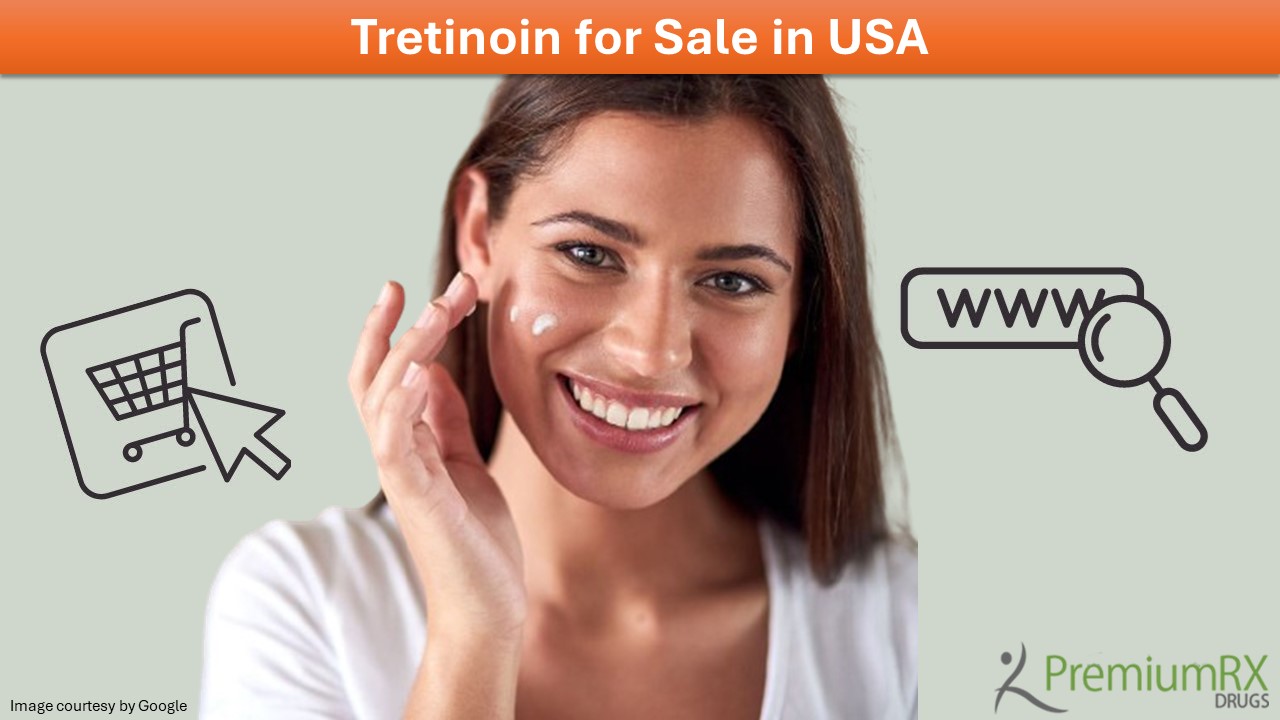Tretinoin is a topical medicine belonging to the retinoid class of drugs. It effectively treats various skin concerns by regulating skin cell growth and differentiation. It also helps regulate skin cell development and maturity, effectively managing different skin problems. Regular application of Tretinoin accelerates the turnover of aging skin cells while stimulating the development of fresh ones. Consequently, it also helps to open clogged pores, reduce inflammation, and improve the appearance of overall skin texture.
Facts you should know about Tretinoin:
- To prevent dark spots and wrinkles, use Tretinoin in your 30s.
- As mentioned above, Tretinoin is a prescription medicine that should only be used under medical supervision due to potential side effects.
- Retinoids are photosensitive, so they can only be applied at night.
- To avoid skin irritation, it is always important to apply tretinoin formulation between two layers of moisturizer.
- Tretinoin makes your skin sensitive to sun rays, so apply sunscreen with SPF 50 and reapply every two hours when you step outside.
- Pregnant or breastfeeding women should not use Tretinoin. Discontinue the topical therapy if you become pregnant.
- The most common tretinoin strengths are Tretinoin 0.025%, Tretinoin 0.05%, and Tretinoin .1%
- It comes in various formulations, including creams, gels, and lotions.
- You can still use Tretinoin if you have rosacea or sensitive skin; you can opt for a lesser concentration.
For what purpose is Tretinoin used?
- Treatment of acne: Commonly prescribed for treating mild to moderate acne, Tretinoin effectively treats both inflammatory (papules, pustules, and cysts) and non-inflammatory (whiteheads and blackheads) forms.
Tretinoin can be extremely beneficial in treating hyperpigmentation problems such as melasma and post-inflammatory hyperpigmentation. It helps to reduce dark spots and even out skin tone significantly.
- Fine lines & wrinkles: Tretinoin formulations reduce the appearance of wrinkles and fine lines of aging. Regular usage can reduce fine lines, wrinkles, and other signs of aging by stimulating collagen production and improving skin’s elasticity.
- Rough skin texture: Retinoids are also effective at improving acne scars, the overall skin texture of dead skin cells, and the growth of all new and smoother skin cells.
Can I use Tretinoin if you have rosacea?
You can use Tretinoin as an antiaging therapy, even if you have rosacea or very sensitive skin. First, you need to eliminate the symptoms and then initiate tretinoin treatment. Consult a dermatologist for advice on adding Tretinoin to your daily skincare regimen, even if you have rosacea.
How long does it take for Tretinoin to function?
According to skin care experts, if you use this topical formulation for 2 or 3 days a week, you will notice the first results in around 10 weeks. You will learn more about its beneficial effects on the skin after 2 to 6 weeks, three months, and twelve months of continued use.
What are the possible side effects?
Tretinoin, while effective in addressing various skin issues, can also have some side effects, particularly when initiating topical therapy or if used improperly. It is important to learn about the side effects of Tretinoin and use it under the guidance of a dermatologist. The common side effects of Tretinoin are skin irritation, dryness, peeling and flaking, increased sensitivity to sun, tingling or burning sensation, skin irritation, hyperpigmentation of skin due to irritation, and increased breakouts at the beginning of the treatment.
How to apply Tretinoin?
Although Tretinoin has numerous benefits for the skin, it tends to be irritating, especially if you use this formulation for the first time. This is why it is important that you only use it under the guidance of medical supervision and that you should follow advice on how to use it, how to layer it, and the best strength for your requirements.
Combining Tretinoin with other medication
Acne is often treated with a combination of two or more medications used simultaneously, commonly called combination therapy. Combination therapy addresses multiple factors contributing to the development of acne, such as excessive oil production, bacterial growth, inflammation, and abnormal shedding of skin cells. By using a variety of medications that target these various factors, dermatologists can often attain better and more comprehensive results than a single therapy alone.
Buy Tretinoin online after a dermatologist consultation
Get a dermatologist’s prescription for Tretinoin; once you receive the prescription, you can buy the Tretinoin formulation online at affordable prices from a reliable pharmacy like premiumrxdrugs. The online pharmacy offers authentic medications to your doorstep.




